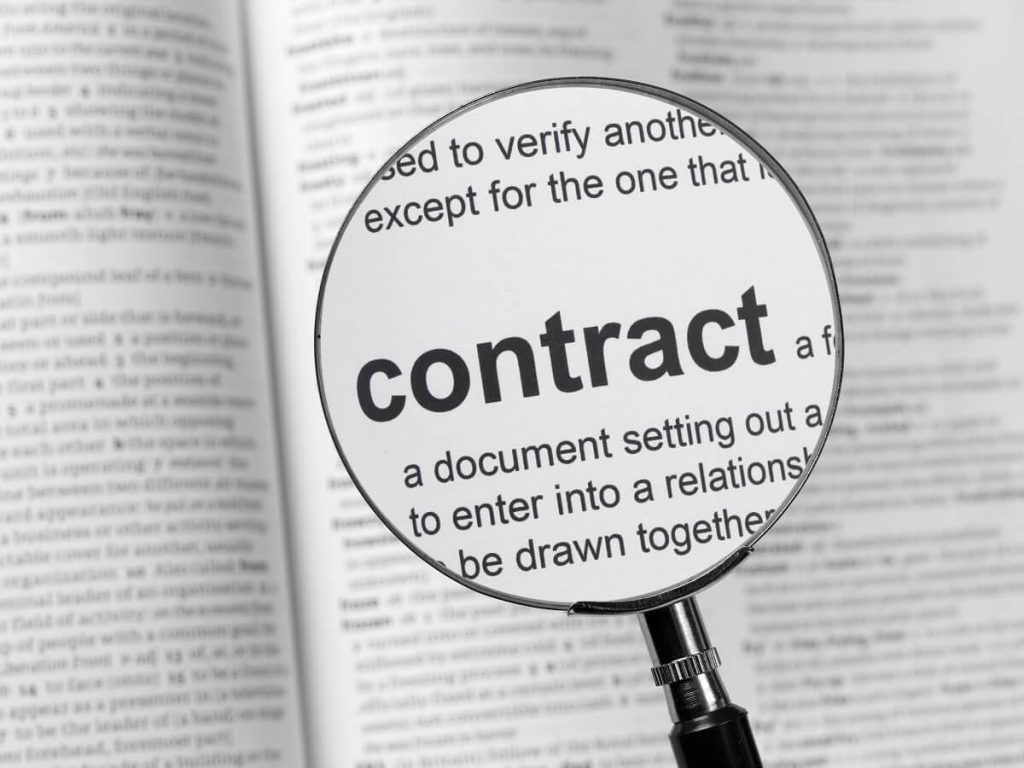Disclaimer: This article provides general information explaining complex legal concepts. Please contact Butler McDermott Lawyers for specific legal advice.
Ready to buy a home and the contract of sale has been drafted? Take a moment before signing. What do you need to look out for in a contract of sale for real estate? What are your rights? How can you be protected? Here are the red flags that you should keep an eye out for.
What must be included in a contract of sale?
The requirements for a contract of sale in Queensland can be different to other states, so it’s important that you know what to look for and seek legal advice.
The features of a contract of sale include:
- The name of the seller and the buyer
- The address of the sale property
- The sale price and deposit amount that must be paid
- The date of settlement
- The certificate of title information
- The conditions of settlement (such as inspections and financing)
- Whether the property is available as vacant possession or subject to lease
- Any inclusions and exclusions
- Any other encumbrances (mortgage or lease agreement)
Who prepares the contract of sale and is there a standard?
There is a standard contract that is approved by the Queensland Law Society and Real Estate Institute of Queensland. It is a commonly used contract of sale in Queensland. A contract of sale can be drafted by your real estate agent, but it’s best that your conveyancing lawyer takes a look at it, too. Remember, it is the real estate agent’s job to get the best price for the property, but it is your lawyer’s job to give you legal advice and protect your interests.

What are the red flags to look for in a contract of sale?
Straying from a standard contract of sale
While it is not compulsory to use the standard property contract of sale, it will ensure you are meeting the standards of the Property Law Act and the current requirements in Queensland. Without having your lawyer review it, you may not know if the correct standards are reached and if any conditions have been snuck in.
Of course, there may be conditions that need to be added or adjusted for your individual circumstances. After all, each property sale will be different. But it is important that you are involved in these negotiations and your lawyer can help you filter through all the jargon.
Missing or incomplete information in the condition precedenT
Conditions in a contract are things that need to occur before the final sale goes through. The standard conditions in your contract often relate to finance, building inspections, pest inspections, and the ability to sell your property. If any conditions you want are not written into the contract, the seller will not be legally obligated to follow these conditions.
Additional contingencies
Aside from the standard conditions previously mentioned, the seller may add further conditions to the contract without your knowledge. While some of these can be normal for certain sales, you will need your lawyer to check for any unscrupulous clauses.
Questions about authority to sell
Whoever is selling the property needs to have authority to sell. They must have received permission from the owner of the property.
Look out for inconsistencies in your contract. You want to avoid any illegal or fraudulent transfers of property. Make sure the sellers’ name on your contract, vendor statement and title are all the same. Issues can arise where the property is being sold by a trustee in bankruptcy, a liquidator, power of attorney or an executor in a deceased estate. Going through with such a sale can cost you even more if the true owner decides to take the matter to court.
Missing, incomplete, or unclear documents
There are disclosures that the seller will need to share with you in your negotiations. These will be provided in the vendor statement which must be complete and accurate. It will provide the history of the property, any and all encumbrances, whether the property is on contaminated land or listed in the environmental management register, and confirm if there is a pool safety certificate.
Any documents that affect the sale of your property such as the title documents, drainage diagrams and zoning certificates should be clear and complete. These will greatly affect your decision to buy, so if vital information from these documents or the documents altogether are missing or hidden, this is a serious red flag. Your lawyer will make sure you attain all necessary documents.
Default interest clauseS
Default interest clauses will often involve a requirement to pay around 10% to 14% on overdue payments. Make sure your lawyer checks this as anything above 14% can be unreasonable and further negotiations may need to occur.
Body corporate information
If you are buying an apartment or townhouse, your seller will have to provide a certificate from the body corporate and notes from their last meeting in the vendor statement. Take care in reading these notes and see if any red flags are raised. Is there extra funding for major building repairs? There may be building defects that indicate ongoing issues. Are there any increases in security? This could be as simple as a system update, but it may be in response to theft and other crimes.
Hidden fees
Everything in your contract needs to be clearly stated. Sometimes there are hidden fees that should not be payable by you contained in the clauses of your contract. Make sure that your lawyer checks that you’re not paying more than you need to.
What now?
If any one of these red flags is missed, it can cost you so much more in the future. As part of the conveyancing process, a lawyer will review your contract. This is why you need a reputable, thorough, and careful lawyer that knows the things to look for before signing a contract. At Butler McDermott, we take pride in our profession and are highly experienced in dealing with these contracts.
Buying a property is a big decision. Protect your investment. Contact us at Butler McDermott Lawyers today.




















